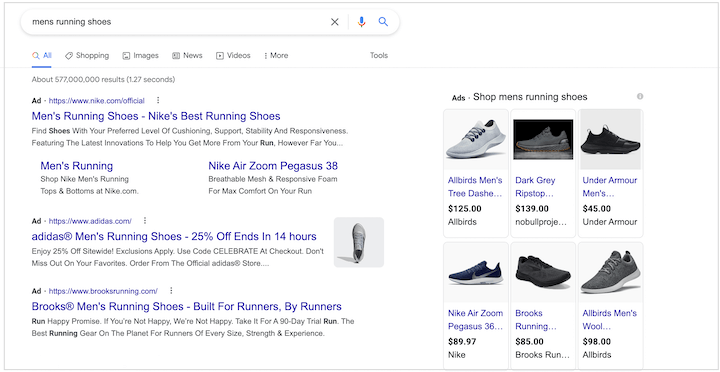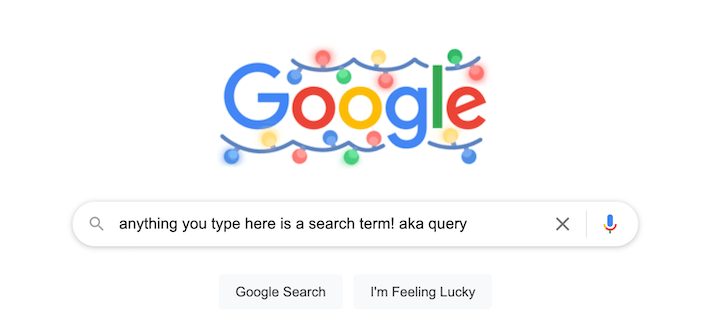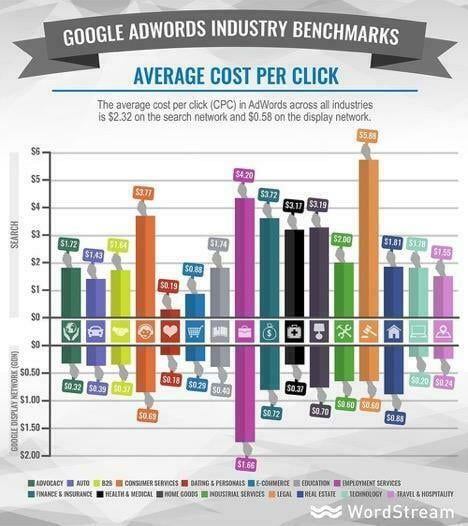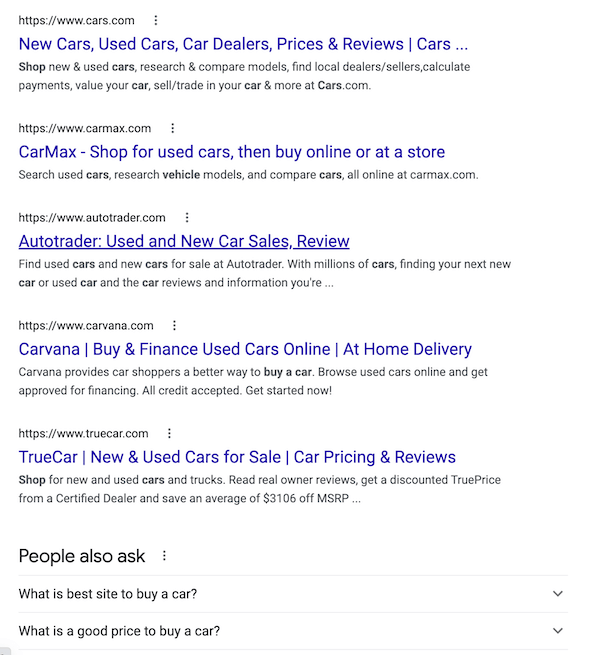A search term, otherwise known as a search query, is the word or phrase someone enters into a search engine, such as Google. A search term often contains (or is itself) a keyword: a word or phrase search marketers bid on in their search campaigns and try to rank for in the organic search results.
Wait, wait, wait. Bid? Search campaigns? Organic search results? What are these ludacris terms and what do they mean to me?
You’re right ‒ we got a little ahead of ourselves. To go in-depth with bids, please go here. In the meantime, let’s talk a little more about search terms, keywords, and search marketing.
Paid Search Marketing
For the sake of simplicity, let’s stick to Google for now. Google’s paid search advertising platform is called Google Ads (formerly known as AdWords) and it is a pay-per-click (PPC) system. This means that a given advertiser pays Google a small fee every time one of its ads is clicked by a Google user.
The ads you see when using Google depend on the search term you enter. More accurately, the ads depend on the keywords you enter. Essentially, an advertiser identifies the words and phrases (known as keywords) that are relevant to its business. Then, the advertiser declares a bid for each relevant keyword. A bid is the maximum amount of money the advertiser will pay per click for ads linked to a given keyword.
For example, Nike will identify “running shoes” as a keyword and bid, say, $5 per click. Then, when a consumer enters the search term “mens running shoes,” Google runs an automated auction that involves every advertiser, including Nike, that has bid on keywords connected to “mens running shoes.” In the end, the winners of the auction get the top advertising spots. Read more about the Google auction here.

To be succinct: search terms carry keywords, and keywords are at the core of paid search marketing (or PPC, or Google Ads).
Search Engine Optimization (SEO)
Search engine optimization, often shortened to SEO, refers to all the stuff a website or business can do to improve its performance in the unpaid results of a Google search (not the ad results). It should come as no surprise that the basic goal of SEO is to get on the first page. Just like paid search marketing, SEO revolves around search terms and keywords.
Organic search results for “buy a car”
Google wants to deliver to its users relevant, high-quality search results. Thus, Google has an algorithm (which changes every day) to determine which websites get on the first page and how they’re ordered. In order to be one of the top results, a website must be a reputable, authoritative source, and its content must be relevant to the search term.
To be considered reputable, a website must accumulate Domain Authority, which is best achieved by getting its content linked to by other reputable sites. Similarly, in order for a single piece of content to attain Page Authority, it must earn a lot of good, outside links. To do this, a site must create informative, engaging content that people want to consume, cite, and share with others, particularly on social media. As you can imagine, earning Domain Authority and Page Authority are not overnight processes.
For a website’s page or piece of content to be considered relevant to a given search term, it must be centered around a keyword. For example, if you run a Boston sports blog, and you want an article to rank highly for searches containing “tom brady,” that keyword should be included in nearly every part of the page: title, headline, URL, subheadings, body copy, image names, and alt texts. Although Google punishes those who unnaturally “stuff” their content full of the keyword, using it reasonably is essential to being considered relevant.
At first glance, “search term” appears to be an insanely simple thing. But, as you can see, it’s an instrumental part of search marketing – both paid and unpaid.





0 Comments